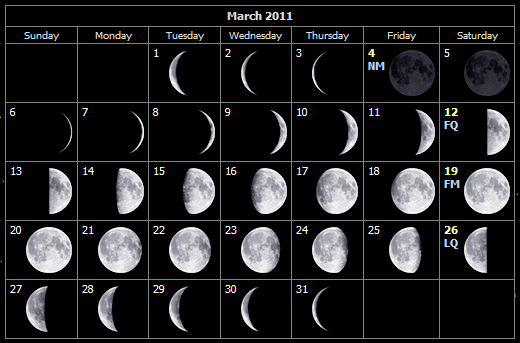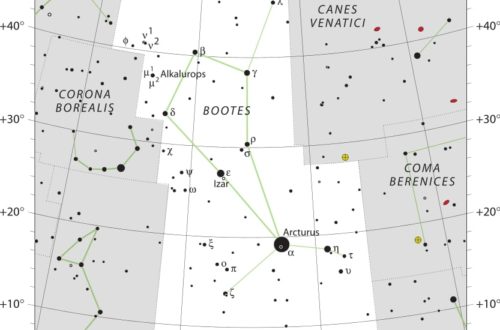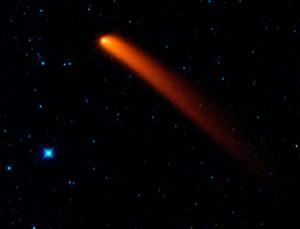Monthly Stargazing Calendar for March 2011
Looking for the March 2024 stargazing calendar?
From now on the stargazing calendar series will be published once a month instead of every week like before. This makes sense, considering that there isn’t always a major astronomical event every week; however there always is at least one each month.
Featured astronomical event
March Equinox: This month, on the 20th, an equinox will occur. The Sun will shine directly on the equator and there will be nearly equal amounts of day and night throughout the world.
Moon phases
As you know, the Moon has a big impact on the visibility of celestial bodies in the night sky. So here are the Moon’s phases for this month:

Would you like to be notified of stargazing events?
Positions of the planets this month
Mercury: The closest planet to the Sun can be seen between the constellations of Aquarius, Pisces and Cetus at dawn and dusk. This planet, being the closest to the Sun, will appear to move quickly in the night sky and it’s position will change.
Venus: The sister planet can be seen in the Capricornus constellation. Just like Mercury, the planet can only be seen at dawn and dusk.
Mars: The red planet can be seen in the constellation of Aquarius near Neptune.
Jupiter: The gas giant is visible between the constellations of Pisces and Cetus. Jupiter can easily be spotted with the naked eye, even in highly illuminated cities.
Saturn: The ringed giant can be seen with the naked eye in the middle of the Virgo constellation, not far from the bright star Spica.
Uranus: The gas giant can be seen between the constellations of Pisces and Cetus with the use of a telescope.
Neptune: The blue giant requires a telescope pointed in the constellation of Aquarius in order to be seen.
See also: Next month’s calendar: Stargazing Calendar for April 2011
Would you like to receive similar articles by email?





